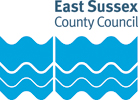Accessibility
Accessibility statement for Citizen Space
We want as many people as possible to be able to use this website. This website is made up of:
- Software that is designed and controlled by Delib, for example the overall structure and the look and feel of the pages.
- Content that has been added by East Sussex, for example most of the information, including words, pictures and documents.
Delib does not control the content added to this site, but does develop and test the software to support:
- Changing colours, contrast levels and fonts using browser or device settings
- Zooming in up to 400% without the text spilling off the screen
- Navigating the website using just a keyboard or speech recognition software
- Listening to the website using a screen reader
Content that has been added that is not fully accessible may be listed on this page as a non-conformity, or details may be given alongside the inaccessible content
How accessible this website is
We know some parts of this website are not fully accessible:
- some homepage cards have the text obscured the browser is zoomed
- most older PDF documents are not fully accessible to screen reader software
- progress bars on surveys have a low colour contrast
- you can only go between 'next page' and 'previous page' on the list of surveys
Feedback and contact information
We are always looking to improve the accessibility of this website. If you find any problems not listed on this page or think we’re not meeting accessibility requirements, contact us.
Enforcement procedure
The Equality and Human Rights Commission (EHRC) is responsible for enforcing the accessibility regulations. If you are not happy with how we respond to your complaint, contact the Equality Advisory and Support Service (EASS).
Technical information about this website’s accessibility
Delib is committed to making the software accessible, in accordance with the Public Sector Bodies (Websites and Mobile Applications) (No. 2) Accessibility Regulations 2018.
Compliance status
Delib test the software against the Web Content Accessibility Guidelines (WCAG) 2.2 AA standard. Improvements to the software are released regularly. Any changes made to the software as a part of that process are tested internally in advance of release for compliance with the Web Content Accessibility Guidelines V2.2 level AA.
This website is partially compliant with the Web Content Accessibility Guidelines version 2.2 AA standard, the non-compliances and exemptions listed below.
Non-accessible content
The content listed below is non-accessible for the following reasons.
Some activity cards have redundant visually hidden text which duplicates the activity title. This fails WCAG 2.2 success criterion 1.1.1 (non-text content).
The PDF that is supplied to a respondent on completing an activity does not have heading tags or a document title. This fails WCAG 2.2 success criterion 1.3.1 (info and relationships).
matrix questions can be announced confusingly in certain situations. Additionally, radio button matrix components are not correctly grouped in the markup. This fails WCAG 2.2 success criterion 1.3.1 (info and relationships).
Pagination links (next/previous page) on the activity finder and the published responses page should be marked up as a list. This fails WCAG 2.2 success criterion 1.3.1 (info and relationships).
The progress indicator on linear surveys is incorrectly marked up as a heading. This fails WCAG 2.2 success criterion 1.3.1 (info and relationships).
When an error occurs on an activity, the focus can sometimes be inconsistent for assistive technology. This fails WCAG 2.2 success criterion 1.3.2 (meaningful sequence).
Activity fact banks have insufficient contrast when focused. This fails WCAG 2.2 success criterion 1.4.3 (minimum contrast).
Some homepage and collection cards can have the text obscured if text in the browser is zoomed or if extra spacing is added to text. This fails WCAG 2.2 success criterion 1.4.4 (resize text).
The progress indicator on survey pages has a low colour contrast ratio against the background of the page (1.6:1 ratio). This fails WCAG 2.2 success criterion 1.4.11 (non-text contrast).
Some input elements on survey pages and on the help and feedback page have insufficient contrast when they are focused. This fails WCAG 2.2 success criterion 1.4.11 (non-text contrast).
Visible label does not match screen-reader only label on mobile menu. This fails WCAG 2.2 success criterion 2.5.3 (label in name).
Content that’s not within the scope of the accessibility regulations
PDFs and other documents
The accessibility regulations do not require us to fix PDFs or other documents published before 23 September 2018 if they’re not essential to providing our services.
Some of our PDFs and Word documents are essential to providing our services. For example, we have PDFs with information on how users can access our services, and forms published as Word documents. We plan to replace these with accessible HTML pages.
Any new PDFs or Word documents we publish will meet accessibility standards.
What we're doing to improve accessibility
Delib work on accessibility throughout the year and regular updates are released to the product.
Preparation of this accessibility statement
This statement was prepared in September 2019. It was last reviewed on 30 October 2024.
This website was last tested in March 2024 against the WCAG 2.2 AA standard. Delib conducted an external accessibility test, using by TetraLogical.
See also East Sussex County Council's accessibility statement.
